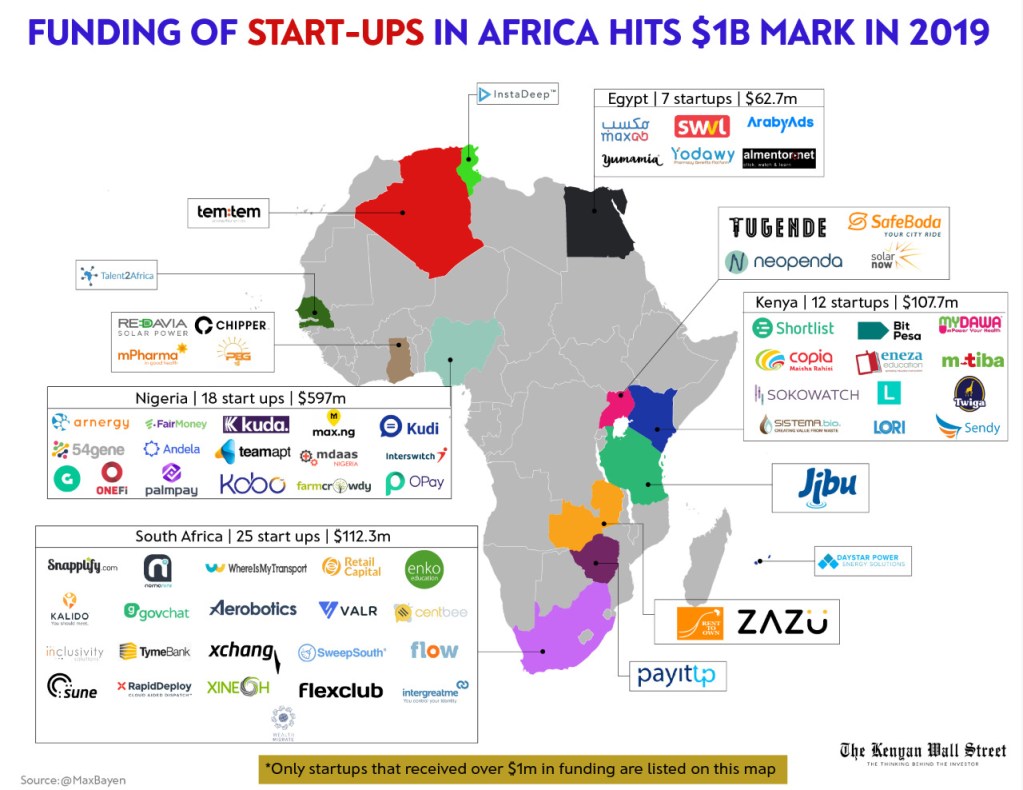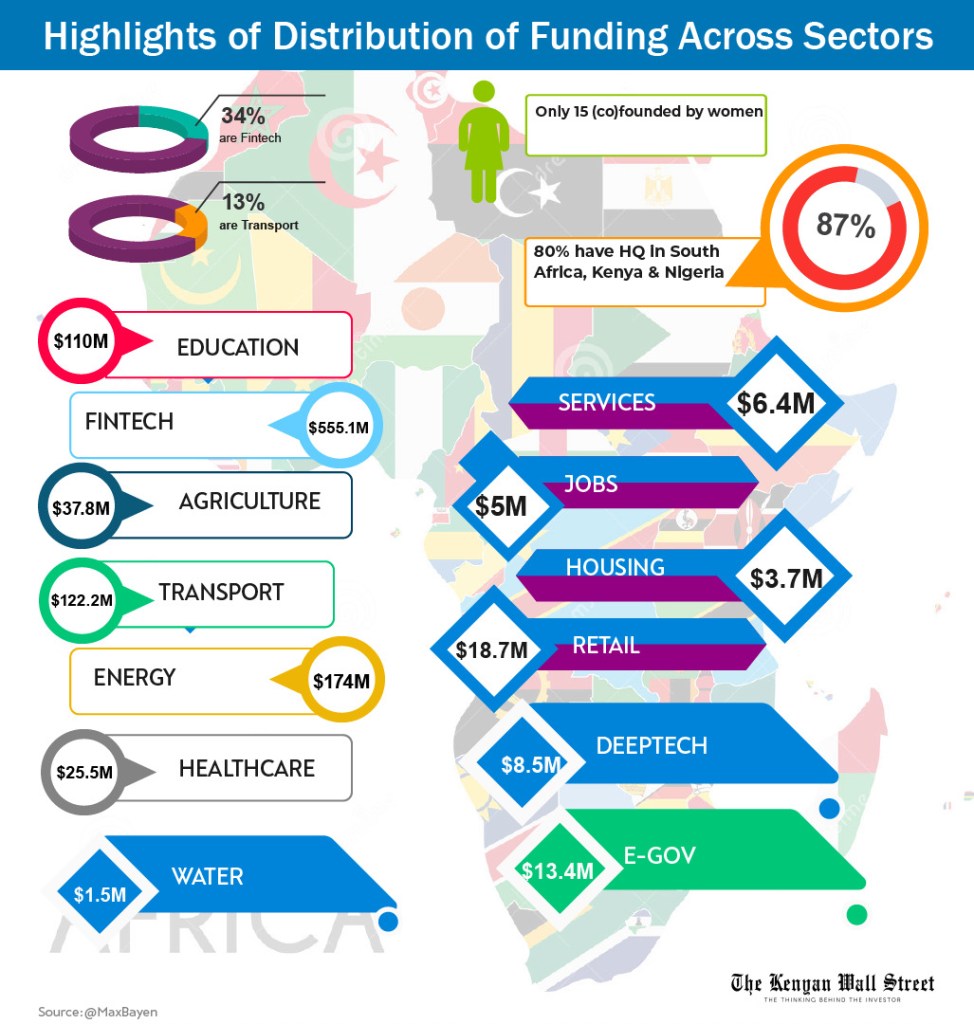African startups raised over $1.1 billion in 2019, with significant funding going to Fintechs. Data shows that about 77 startups each raised financing worth $ 1 billion and over in 2019, from 168 different investors.
The figures show increasing interest in the continent’s young companies.
While the increased funding of startups shows excellent promise for young African entrepreneurs, there are disparities in the distribution of funding across genders, sectors, and geography.
Distribution of Funding Across African Startups in Different Countries
The majority of the funding went to Nigeria, South Africa, and Kenya, with the three nations taking over 75% of the total funds.
Nigeria alone took up $ 597 million, through 18 startups. South Africa followed with 25 startups taking $112.3 million while Kenya came third with $107.7 million distributed among 12 startups.
Major beneficiaries of the $1.1 billion funding include Nigeria’s Opay, Interswitch and Andela. Interswitch led with $200m whereas OPay and Andela followed closely with $170m and $100m respectively.

French-speaking Countries Left out
Nevertheless, there’s a remarkable absence of startup funding in Francophone countries. Only three startups from these nations received over $1m in 2019; Mauritius’ Daystar Power, Algeria’s TemTem and Tunisia’s Instadeep.
According to The World Bank, most mature entrepreneurial ecosystems exist in anglophone countries.
Therefore, the world bank launched l’Afrique Excelle, hoping to address gaps in the acceleration of francophone ventures by connecting startups to investors and mentors.
Funding Across Companies and Sectors
Even among the main countries, a few companies took up significant portions of the funding. For instance, Opay, Interswitch, and Andela took up over half of Nigeria’s funding and over a quarter of the total $1.1b.
Similarly, Lori Systems and Twiga Foods alone took over half of Kenya’s $107m funding.
SEE ALSO: The 10 African Startups selected to pitch before Jack Ma in Ghana
Disparities also appear across sectors that receive funding, with fintech on the lead and water sector on the tail end. Fintech alone took up $ 555m; half of the amount, whereas water took only $1.5m.
Transport and Logistics startups took up $122m. According to Quartz, investment in fintech continues to grow to cater for Africa’s majority unbanked population, leveraging on mobile and internet services.

African Startups in Agriculture Remain Underfunded
The fact that very few agriculture startups received over $1m in funding in 2019 is a matter of concern. Mckinsey cites that 60% of sub-Saharan Africa’s population are smallholder farmers.
Besides, the continent sources 23% of its GDP from agriculture. Worse still, countries which show the highest agricultural potential are missing from the picture.
Ethiopia, Tanzania and Nigeria account for almost 60% of agricultural potential in Sub-Saharan Africa. However, data shows that there was no agrarian startup from either Tanzania or Ethiopia, which received a disclosed amount of funding above $1m in 2019.
Inequalities Across Gender
Even as startups continue to scale in the continent, leadership in these organizations is far from level ground. For instance, out of the 77 startups with over $1m in 2019, only 15 were co-founded by women.
Concerns on the absence of women in the tech space arose in the Africa Early Stage Investment Summit (AESIS), where stakeholders questioned the absence of both women and African founders in startups.




